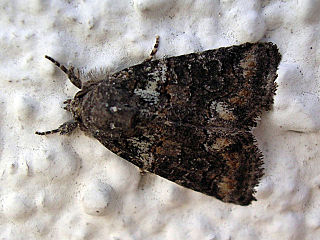
West Asia, also called Western Asia or Southwest Asia, is the westernmost region of Asia. As defined by most academics, UN bodies and other institutions, the subregion consists of Anatolia, the Arabian Peninsula, Iran, Mesopotamia, the Armenian highlands, the Levant, the island of Cyprus, the Sinai Peninsula and the South Caucasus. The region is separated from Africa by the Isthmus of Suez in Egypt, and separated from Europe by the waterways of the Turkish Straits and the watershed of the Greater Caucasus. Central Asia lies to its northeast, while South Asia lies to its east. Twelve seas surround the region (clockwise): the Aegean Sea, the Sea of Marmara, the Black Sea, the Caspian Sea, the Persian Gulf, the Gulf of Oman, the Arabian Sea, the Gulf of Aden, the Red Sea, the Gulf of Aqaba, the Gulf of Suez, and the Mediterranean Sea. West Asia contains the majority of the similarly defined Middle East. The Middle East is a political term that has changed many times depending on political and historical context while West Asia is a geographical term with more consistency. It excludes most of Egypt and the northwestern part of Turkey, and includes the southern part of the Caucasus.

The Mediterranean Games is a multi-sport event organised by the International Committee of Mediterranean Games (CIJM). It is held every four years among athletes from countries bordering the Mediterranean Sea in Africa, Asia and Europe. The first Mediterranean Games were held in 1951 in Alexandria, Egypt, while the most recent games were held in 2022 in Oran, Algeria.

Onopordum, or cottonthistle, is a genus of plants in the tribe Cardueae within the family Asteraceae. They are native to southern Europe, northern Africa, the Canary Islands, the Caucasus, and southwest and central Asia. They grow on disturbed land, roadsides, arable land and pastures.

Tegenaria is a genus of fast-running funnel weavers that occupy much of the Northern Hemisphere except for Japan and Indonesia. It was first described by Pierre André Latreille in 1804, though many of its species have been moved elsewhere. The majority of these were moved to Eratigena, including the giant house spider and the hobo spider.

The official language of Greece is Greek, spoken by 99% of the population. In addition, a number of non-official, minority languages and some Greek dialects are spoken as well. The most common foreign languages learned by Greeks are English, German, French and Italian.

The European cat snake, also known as the Mediterranean cat snake, is a non venomous colubrid snake endemic to the Mediterranean and Caucasus regions.

Ethnic groups in the Middle East are ethnolinguistic groupings in the "transcontinental" region that is commonly a geopolitical term designating the intercontinental region comprising West Asia without the South Caucasus, and also comprising Egypt in North Africa. The Middle East has historically been a crossroad of different cultures and languages. Since the 1960s, the changes in political and economic factors have significantly altered the ethnic composition of groups in the region. While some ethnic groups have been present in the region for millennia, others have arrived fairly recently through immigration. The largest socioethnic groups in the region are Egyptians, Arabs, Turks, Persians, Kurds, and Azerbaijanis but there are dozens of other ethnic groups that have hundreds of thousands, and sometimes millions of members.

Eastern Mediterranean is a loose definition of the eastern approximate half, or third, of the Mediterranean Sea, often defined as the countries around the Levantine Sea.

Bryophila is a genus of moths of the family Noctuidae. The genus was described by Treitschke in 1825.

Chersotis multangula is a moth of the family Noctuidae. It is found in the mountainous areas of Central and Southern Europe, Morocco, Turkey, Armenia, Iran, Syria, Lebanon and the Caucasus.

Dichagyris melanura is a moth of the family Noctuidae. It is found from south-eastern Europe to Turkey, the Caucasus region, north Iran, Israel, Syria and Jordan.
Chersotis elegans is a moth of the family Noctuidae. It is found in the mountains of Spain, Greece, Turkey, the Caucasus, Lebanon, Israel and western central Asia.

Chersotis fimbriola is a moth of the family Noctuidae. It is found in number of isolated populations from Austria to Spain, Morocco, Turkey, Iraq, Iran and Turkmenistan.

The International Committee of Mediterranean Games is the organization of the National Olympic Committees who presides, regulates and organizes the Mediterranean Games. It is based in sport complex OACA in Athens.
Dasumia is a genus of woodlouse hunting spiders that was first described by Tamerlan Thorell in 1875.

Bassaniodes is a genus of crab spiders that was first described by Reginald Innes Pocock in 1903.

Anthrenus is a subgenus of the genus Anthrenus of the subfamily Megatominae within the family of skin beetles.

Anthrenus pimpinellae complex is a group of closely related species from subgenus Anthrenus. Most species that currently belong to the group were previously assigned as subspecies of Anthrenus pimpinellae.















